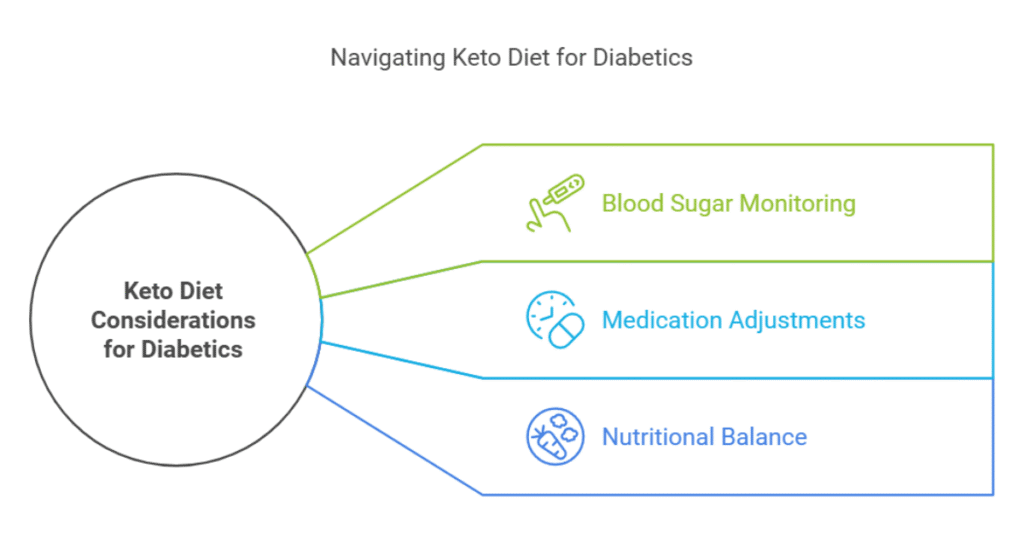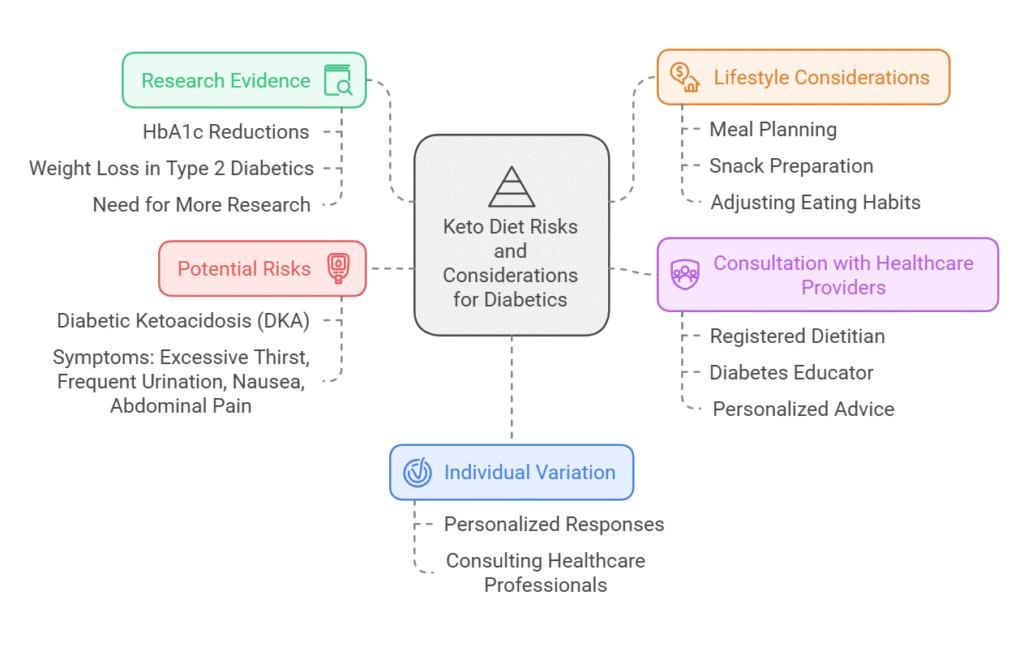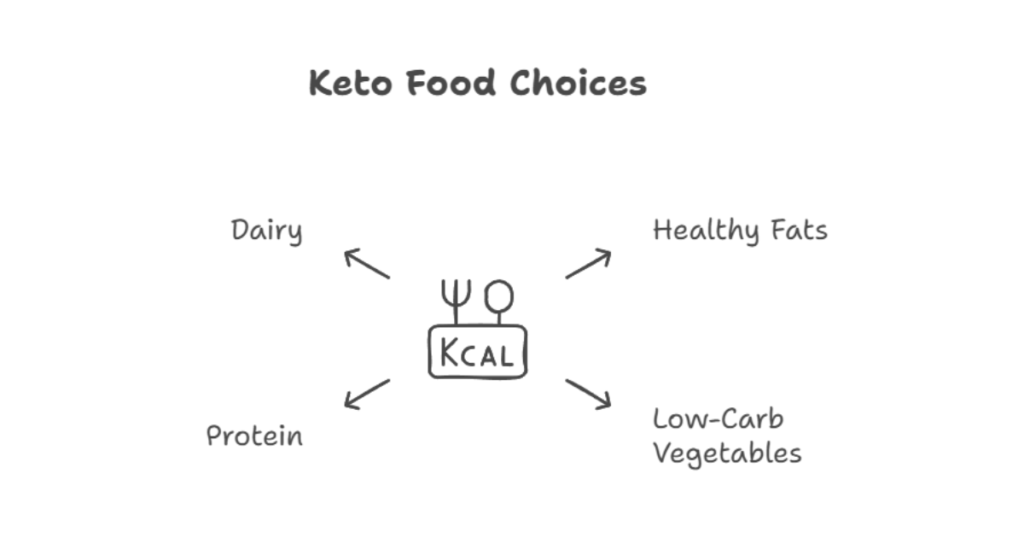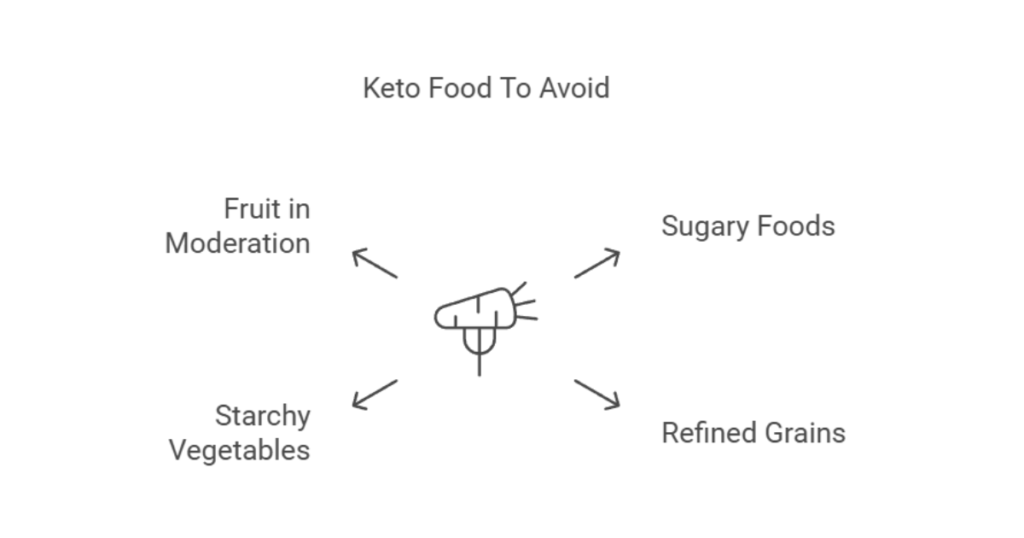This website contains affiliate links. If you make a purchase through these links, I may earn a commission at no extra cost to you. Learn More...
Are keto diets safe for diabetics? This question has become increasingly common as more people turn to the ketogenic diet for weight loss and health benefits. The keto diet is a high-fat, low-carbohydrate eating plan that aims to shift the body’s metabolism into a state of ketosis, where it burns fat for fuel instead of carbohydrates. For diabetics, understanding the implications of such a diet is crucial. This article will explore whether keto diets are safe for diabetics, the potential benefits, risks, and what to consider before making dietary changes.
What is a Keto Diet and How Does it Impact Diabetes?
Keto Diets for Diabetics: A Comprehensive Guide
First, let’s examine what a ketogenic diet entails. Typically, a keto diet consists of about 70-75% fat, 20-25% protein, and only 5-10% carbohydrates. This is a significant departure from the standard diet, which usually includes a higher percentage of carbohydrates. The primary goal is to limit carbohydrate intake, which can lead to lower blood sugar levels and potentially reduce the need for insulin.

Understanding the Impact of Keto on Diabetes
For many diabetics, especially those with Type 2 diabetes, managing blood sugar levels is paramount. The keto diet can assist in this area by cutting out high-carb foods that cause spikes in blood sugar. Some research suggests that following a low-carb diet can improve glycemic control, leading to better overall health. Furthermore, many diabetics report losing weight on a keto diet, which can also improve insulin sensitivity and lower the risk of diabetes-related complications.
Keto Diet Benefits for Diabetics: Blood Sugar Control and Beyond

However, the question remains: are keto diets safe for diabetics? The answer is not straightforward and can vary based on individual circumstances. For some, a keto diet may be beneficial, while for others, it could pose risks. Here are some key factors to consider:
Keto Diet and Diabetes Research: Exploring the Evidence
- Blood Sugar Monitoring: If you are diabetic and considering a keto diet, it is essential to monitor your blood sugar levels closely. The diet can lead to significant changes in how your body processes glucose. Regular monitoring will help you understand how your body responds to the diet and adjust your insulin or medication as needed.
- Medication Adjustments: For those on insulin or other diabetes medications, a keto diet may require adjustments. As carbohydrate intake decreases, you may need less medication to manage your blood sugar levels. Work closely with your healthcare provider to ensure safe modifications to your treatment plan.
- Nutritional Balance: While the keto diet is high in fats, it is still important to ensure that you are consuming a variety of nutrients. Focus on healthy fats from sources like avocados, nuts, seeds, and olive oil. Include plenty of low-carb vegetables to obtain essential vitamins and minerals. A balanced approach will help maintain overall health while following a keto regimen.

Keto Diet Risks for Diabetics: What You Need to Know
- Potential Risks: One of the most significant concerns for diabetics on a keto diet is the risk of diabetic ketoacidosis (DKA), a condition that can occur when the body produces high levels of ketones due to insufficient insulin. DKA typically affects Type 1 diabetics, but it is crucial for everyone following a ketogenic diet to be aware of the signs and symptoms. These include excessive thirst, frequent urination, nausea, and abdominal pain. If you experience these symptoms, seek medical attention immediately.
- Individual Variation: Each person’s body responds differently to dietary changes. What works for one diabetic may not work for another. It’s essential to listen to your body and consult with a healthcare professional before making significant dietary changes.
- Research Evidence: Several studies indicate that low-carb diets, including keto, can be beneficial for diabetics. For instance, a study published in the Journal of Medical Internet Research found that a ketogenic diet can lead to significant reductions in HbA1c levels and weight loss in Type 2 diabetics. However, more research is needed to fully understand the long-term effects of this diet on diabetes management.
- Lifestyle Considerations: Transitioning to a keto diet requires commitment and lifestyle changes. You will need to plan meals, prepare snacks, and possibly adjust your eating habits. Consider whether you can maintain this lifestyle change in the long run, as consistency is key to effective diabetes management.
- Consultation with Healthcare Providers: Before embarking on a keto diet, it is crucial to consult with healthcare providers, including a registered dietitian or a diabetes educator. They can provide personalized advice based on your medical history and current health status. This guidance can help ensure that you follow a safe and effective plan.

Ketogenic Lifestyle and Diabetes: Making It Sustainable
In conclusion, the question of whether keto diets are safe for diabetics does not have a one-size-fits-all answer. For some, it can be a beneficial way to manage blood sugar levels and lose weight. However, it is essential to approach the diet with caution, monitoring your health closely and working with a healthcare provider. A well-planned ketogenic diet, focused on whole, nutritious foods, can potentially offer advantages for diabetics, but individual circumstances will ultimately determine its safety and effectiveness.
If you are a diabetic considering a keto diet, prioritize education, support, and careful monitoring of your health. With the right approach, you can make informed decisions about your diet and work towards better diabetes management. Remember, your health is your priority, and making informed choices is the key to success in any dietary endeavor.
Keto Food List for Diabetics: What to Eat and What to Avoid
To effectively manage blood sugar levels on a keto diet, choosing the right foods is crucial. Below is a guide to help you make informed choices:
Foods to Eat
Healthy Fats: Prioritize healthy fats like avocados, nuts, seeds, and olive oil. These provide essential fatty acids and help you feel full and satisfied.
Low-Carb Vegetables: Load up on non-starchy vegetables like spinach, broccoli, cauliflower, and Brussels sprouts. These are packed with nutrients and fiber while keeping your carb intake low.
Protein: Choose lean protein sources like chicken, fish, eggs, and tofu. Protein is essential for maintaining muscle mass and supporting various bodily functions.
Dairy (in moderation): Opt for full-fat, unsweetened dairy products like cheese, yogurt, and heavy cream. Be mindful of portion sizes as some dairy can contain carbohydrates.

Foods to Avoid
Sugary Foods and Drinks: These cause rapid spikes in blood sugar and should be strictly avoided. This includes candy, soda, fruit juice, and desserts.
Refined Grains: White bread, pasta, rice, and cereals are high in carbohydrates and should be limited.
Starchy Vegetables: Potatoes, corn, and peas are higher in carbs compared to non-starchy vegetables and should be consumed sparingly.
Fruit (in moderation): While fruits contain beneficial nutrients, many are also high in sugar. Choose low-sugar options like berries in moderation.

Remember, everyone’s dietary needs are different, and what works for one diabetic may not work for another. It’s essential to consult with a healthcare professional or a registered dietitian to create a personalized meal plan that aligns with your specific health goals.
To learn more about creating a customized keto meal plan that fits your individual needs, visit the Custom Keto Diet website here…
Read More:
When Should You Not Do Keto Diet? Key Considerations for Your Health
What Not to Eat During Keto Diet: Essential Guide for Success
Are Keto Diets Effective? Explore the Truth Behind Ketogenic Eating








very nice & thanks